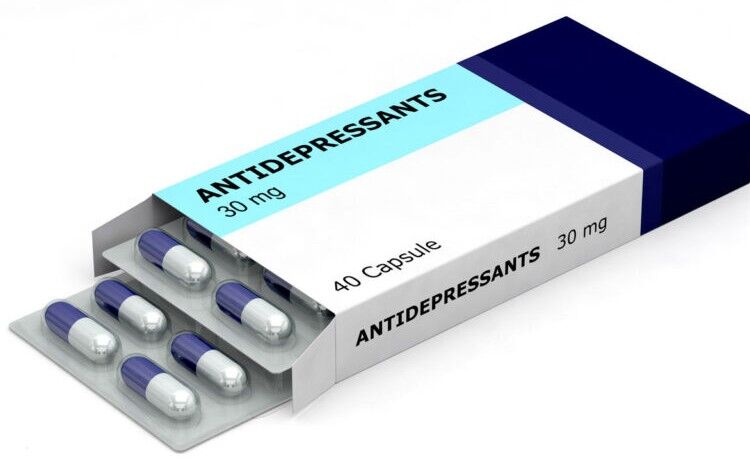Only one in six people who stop taking antidepressants will experience withdrawal symptoms as a direct result, according to a new study.
This is a much lower proportion than other studies have suggested, with previous estimates that over half of patients experience symptoms.
The research, published in the Lancet Psychiatry (5 June), found that overall one in three patients reported at least one withdrawal symptom such as dizziness, headache or nausea.
But around one in six patients experienced the same when they stopped taking a placebo drug, suggesting that ‘approximately half of all symptoms experienced […] might be due to negative expectations (the “nocebo effect”) or non-specific symptoms which may occur at any time in the general population’.
The authors therefore concluded that ‘one in six to seven’, or 15%, of patients will experience one or more withdrawal symptoms as a direct result of stopping antidepressants.
Around one in 35 people (3%) will likely experience ‘severe symptoms’, the study also found.
According to the authors, this is the first ‘meta-analysis’ on the incidence of antidepressant discontinuation symptoms, which analysed 79 randomised trials and included data from over 21,000 patients, of which 72% were women.
Based on their findings, the researchers highlighted that patients and GPs should make joint decisions about whether to discontinue antidepressants, and that patients should be monitored and supported.
Study author Professor Christopher Baethge, from the psychiatry and psychotherapy department at the University of Cologne, said it is ‘important’ that patients can access ‘accurate, evidence-based information’ under the care of a doctor to discuss the ‘balance’ of risk and benefit.
He said: ‘We hope the findings from this study will inform health-care professionals and patients about the risk of experiencing discontinuation symptoms when stopping antidepressants without causing unnecessary alarm.’
Professor Baethge continued: ‘Our findings do not imply that some symptoms experienced by people during antidepressant discontinuation are not ‘real’ or that all discontinuation symptoms are due to expectations on the part of patients.
‘Any symptoms that cause patients discomfort or distress should be taken seriously, and the patient should be supported. The patient and clinician should discuss which of the symptoms might be directly caused by stopping antidepressants and how best to manage all symptoms.’
The authors did note that a ‘challenge’ in all studies on antidepressant discontinuation is the chance that symptoms of ‘re-occuring depression’ are mistaken for discontinuation symptoms.
Dr Sameer Jauhar, senior clinical lecturer in affective disorders at psychosis at King’s College, said there has been a lot of ‘debate’ about antidepressant withdrawal in recent years with ‘very high estimates’ of withdrawal symptom incidence of around 50%.
‘[This high estimate] was based on a very unconventional review, which included data from online surveys, which are notoriously difficult to interpret (ask anyone involved in election polling),’ he said.
Dr Jauhar said this ‘thorough’ review only uses data from those taking part in trials, but highlighted that ‘this is the best evidence we have’.
He added: ‘Clinically, doctors will still need to have conversations about stopping medications and doing this safely, though it will be gratifying to know rates of withdrawal are nowhere near as high as reported.’
However, Professor Tony Kendrick, professor of primary care at the University of Southampton, said that many of the studies included in the systematic review were ‘not set up to study antidepressant continuation as a primary aim’.
He said: ‘Consequently, the period of taking the antidepressant was 12 weeks or less in 36 out of the 79 included studies (I observed this from the table of studies included as an appendix to the paper).
‘This is a serious weakness which is not acknowledged in the paper, as severe discontinuation symptoms would not usually be expected to arise after only a few weeks of antidepressant use.’
In 2022, NICE concluded that antidepressants are not ‘dependence-forming’ drugs, although they can cause withdrawal symptoms.
NICE also recommended that GPs should provide regular reviews for patients on antidepressants and drugs for chronic pain that may cause dependency or withdrawal.
This article first appeared in our sister title Pulse.


Have your say
Please add your comment in the box below. You can include links, but HTML is not permitted. Please note that comments are not moderated before publication and the views expressed are those of the user and do not reflect the views of The Pharmacist. Remember that submission of comments is governed by our Terms and Conditions. You can also read our full guidelines on article comments here – but please be aware that you are legally liable for any libellous or offensive comments that you make. If you have a complaint about a comment or are concerned that a comment breaches our terms and conditions, please use the ‘Report this comment’ function to alert our web team.